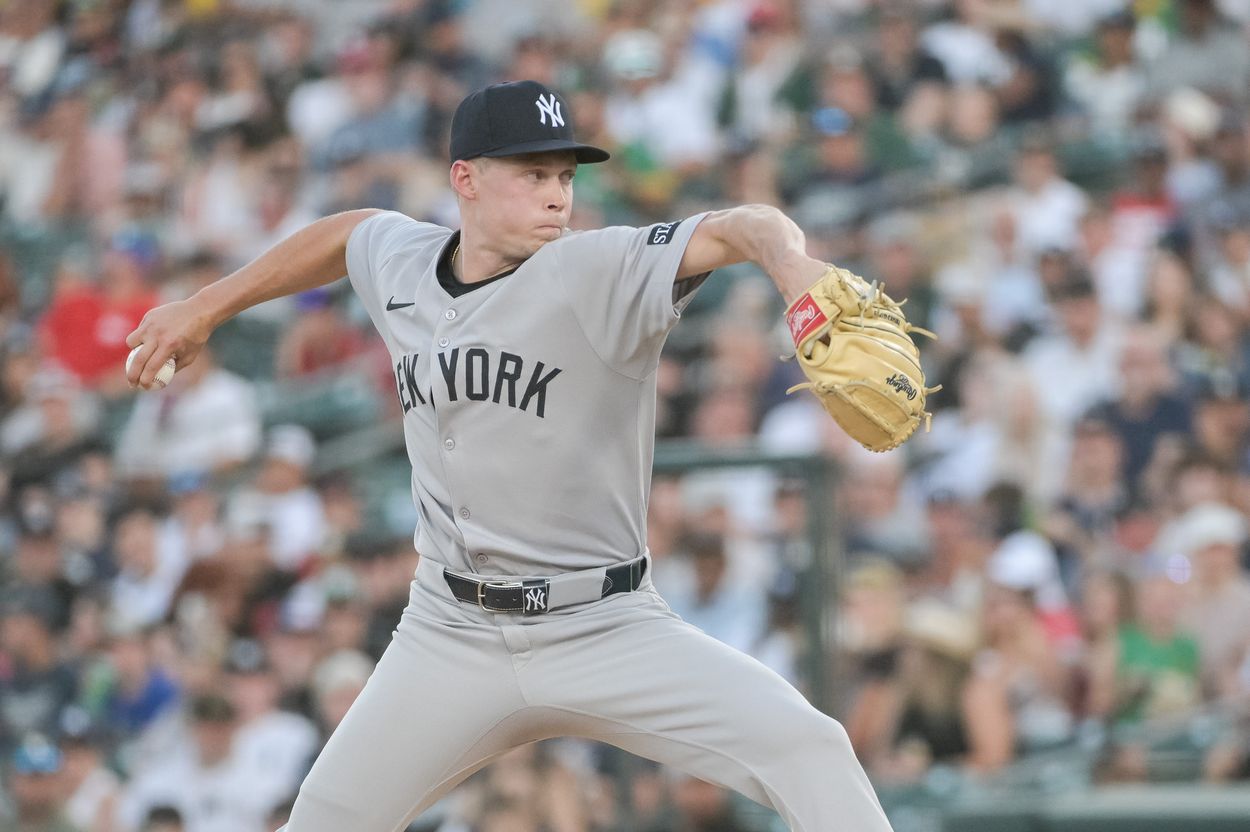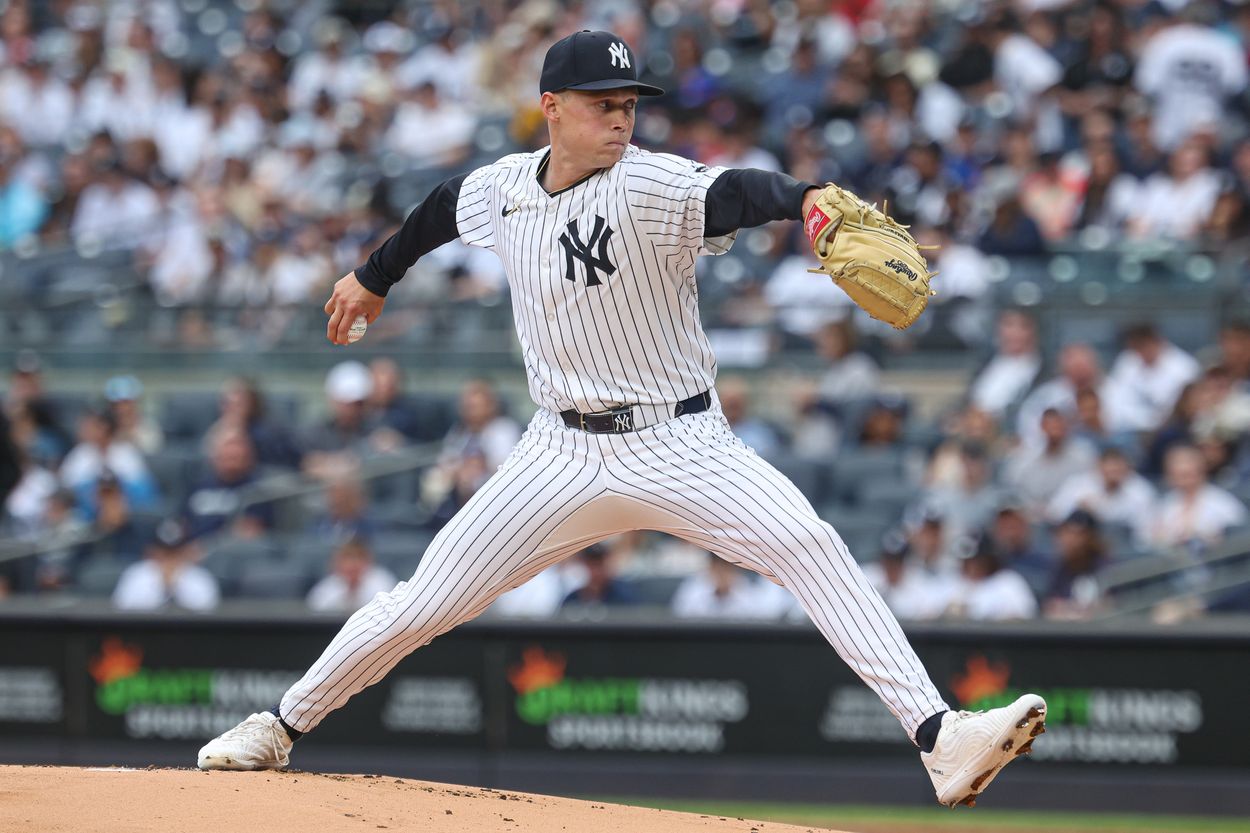
Will Warren has been the target of criticism for the Yankees as both he and Carlos Carrasco have struggled mightily to deliver competitive starts consistently. Carrasco has been designated for assignment already and was outrighted to Triple-A after going unclaimed on the waiver wire, but Warren remains in the starting five out of necessity. Last night, he would face off against an Athletics’ offense that has been brilliant while also pitching in Sacramento, a very hitter-friendly environment.
Despite the odds being stacked against him, Will Warren delivered his best outing ever as a big-leaguer, tossing 7.1 innings of one-run baseball with one walk and seven strikeouts. His repertoire looked brilliant, with some key improvements under the hood that he needs to find a way to sustain so he can cement himself as a reliable backend starter for this Yankees’ team.
The Key Behind Will Warren’s Best Start With the Yankees

The Yankees got a remarkable performance from Will Warren as he pitched deeper into a game than he ever had before, finishing with 7.1 innings of one-run baseball. His struggles this season have been well-documented, and the Yankees have not been able to win his starts because of the early deficits he tends to put the team in. Against the Athletics, it was a completely different story, as Warren was efficient and effective, attacking the zone aggressively while having some more zip on some of his pitches.
Will Warren threw his sweeper, changeup, and sinker noticeably harder than he had in previous starts, and those pitches were a huge reason why he was so successful. The sinker allowed Warren to attack the zone and induce harmless contact as the increased velocity made the natural run and dip he generates even nastier. Slower fastballs and breaking balls with big movement are easier for hitters to track out of hand, and that makes velocity a big variable in whether Warren can have success on a given day.
The data supports this theory, especially with his sinker, which goes from a highly effective pitch when thrown at or above 93 MPH to a brutally ineffective one when thrown at or below that same number:
ALSO READ: Yankees’ star in the making discusses ‘special’ night

We see this same phenomenon with his sweeper, which has a .666 wOBA allowed when thrown at or below 82 MPH, but a .286 wOBA allowed when thrown >= 82 MPH. Throwing harder is the key for Will Warren, who has had inconsistent velocity readings all season. If he can hone his mechanics and consistently sit around 93-94 MPH with the sinker and 82-83 MPH with the sweeper, we could be looking at the Michael King clone that many hoped he could be.
The big question now is whether he can consistently throw 93-94 MPH, and the answer is a resounding yes when looking at his track record as a pro. Back in 2023, the right-hander threw his sinker on average at 93.2 MPH, but last year, we saw a slip in the fastball velocity and in his command as a whole. He struggled in Triple-A in 2024 and got smoked in the big leagues, so perhaps the rookie has re-discovered what allowed him to throw hard and execute pitches in a way he couldn’t last year.
Cleaning up the mechanics and consistently sitting at the velocity we saw last night would be a game-changer for Will Warren, who might be feeling more comfortable with the weather improving. It isn’t a coincidence that in his first two starts, he sat 92 MPH on his fastballs and sported a 6.00 ERA and 4.22 FIP, while in his last six appearances, he’s pitched to a 4.33 ERA with a 3.41 FIP, sitting at 93.3 MPH on his fastballs.
Warmer weather might bring out the best that Will Warren has to offer, and if he were a ~4.30 ERA starter his rookie year with good strikeout rates, the Yankees would be more than happy with that outcome.